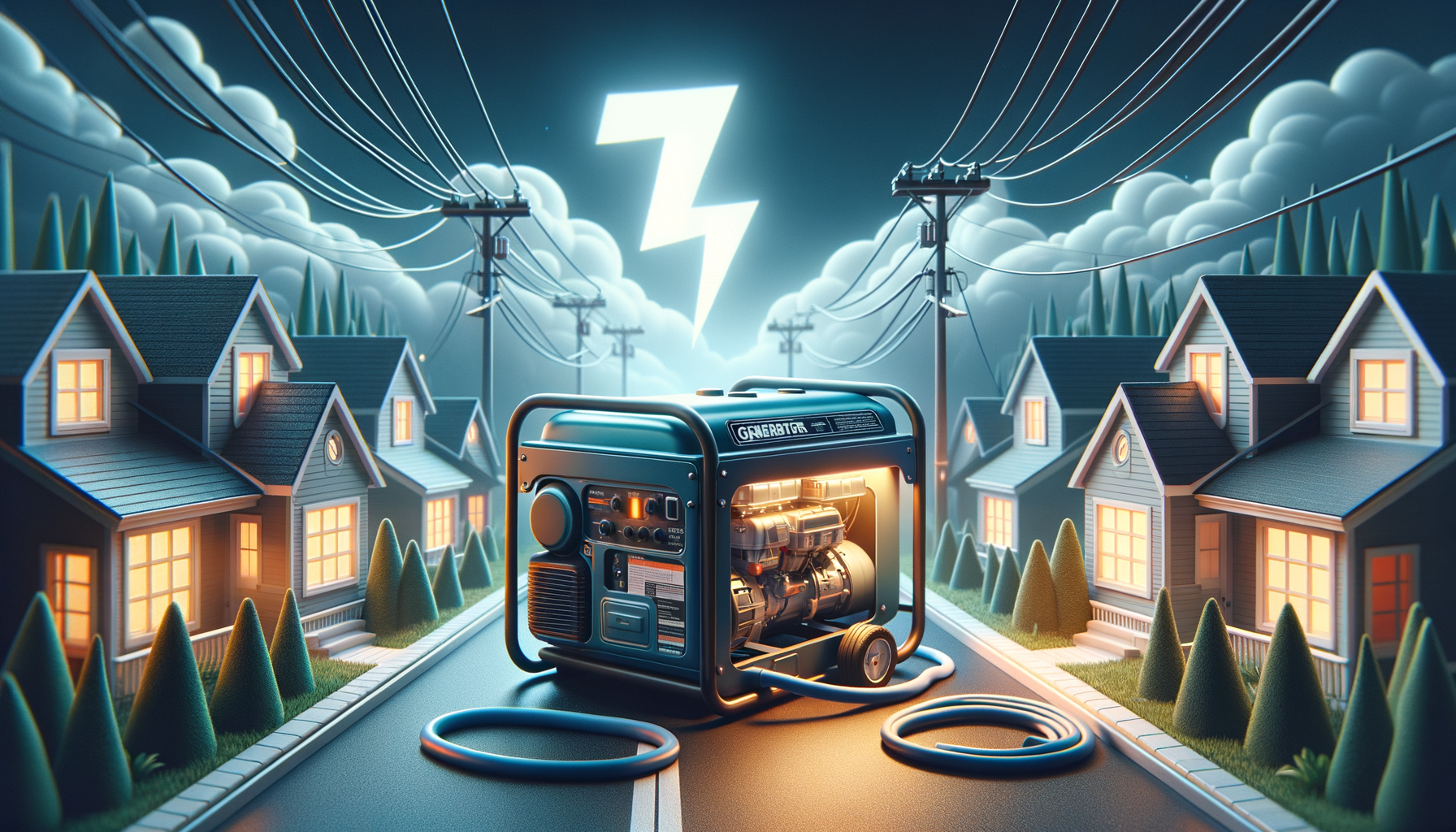Understanding Home Generators
Home generators are essential devices that provide backup power during electrical outages. These machines come in various sizes and capacities, tailored to meet different household needs. The primary function of a home generator is to convert mechanical energy into electrical energy, ensuring that homes remain powered even when the main electrical supply is disrupted. Home generators can be broadly classified into two categories: portable generators and standby generators.
Portable generators are versatile, often used for both home and recreational purposes. They are typically gasoline-powered and can be moved to different locations as needed. On the other hand, standby generators are permanently installed outside the home and are usually connected to the home’s electrical system. These generators are often powered by natural gas or propane and can automatically switch on during a power outage.
The choice between a portable and standby generator depends on various factors, including the size of the home, the number of appliances to be powered, and budget considerations. Understanding these options is crucial for homeowners looking to invest in a reliable backup power solution.
The Benefits of Having a Home Generator
Investing in a home generator offers numerous benefits that go beyond mere convenience. One of the primary advantages is ensuring continuous power supply during outages, which is particularly important for households with essential medical equipment or those living in areas prone to severe weather conditions. A home generator can keep critical appliances like refrigerators, heaters, and sump pumps running, preventing food spoilage and water damage.
Moreover, home generators contribute to safety and security. During prolonged outages, a generator can power security systems, ensuring that homes remain protected. Additionally, generators can maintain lighting, reducing the risk of accidents and injuries in the dark.
Another significant benefit is the potential increase in property value. Homes equipped with standby generators are often more appealing to buyers, as they offer a level of preparedness and peace of mind. The assurance of an uninterrupted power supply can be a decisive factor for many potential homeowners.
Choosing the Right Generator for Your Home
Selecting the right generator involves several considerations, starting with the power requirements of your household. It’s essential to calculate the total wattage of all the appliances and systems you wish to power during an outage. This calculation will help determine the generator’s capacity needed to meet your home’s demands.
Another factor is fuel type. Portable generators commonly use gasoline, which is readily available but requires careful storage and handling. Standby generators often use natural gas or propane, providing a more stable and long-term fuel solution. The choice of fuel impacts the generator’s running time and maintenance needs.
Noise levels are also a consideration. While portable generators can be quite noisy, many standby models are designed to operate quietly. For those living in noise-sensitive areas, opting for a quieter model can be beneficial.
Finally, budget plays a crucial role. Portable generators are generally more affordable upfront but may incur higher operational costs over time. Standby generators, though more expensive initially, offer the convenience of automatic operation and lower maintenance in the long run.
Installation and Maintenance of Home Generators
Proper installation and maintenance are vital to ensure the efficient operation of a home generator. For standby generators, professional installation is recommended to guarantee safety and compliance with local regulations. This process involves connecting the generator to the home’s electrical system and setting up an automatic transfer switch to enable seamless power transition during outages.
Portable generators require a different approach. They must be placed in a well-ventilated area to prevent carbon monoxide buildup. Extension cords used with portable generators should be heavy-duty and rated for outdoor use to ensure safety.
Regular maintenance is essential for both types of generators. This includes routine checks of oil levels, air filters, and fuel systems. Standby generators may require periodic professional servicing to ensure they remain in optimal condition. Portable generators, on the other hand, need frequent checks and fuel stabilization to prevent engine damage.
By adhering to these maintenance practices, homeowners can extend the lifespan of their generators and ensure they are ready to provide power when needed.
Conclusion: Ensuring Energy Security with Home Generators
Home generators play a crucial role in maintaining energy security, offering a reliable solution during power outages. Whether opting for a portable or standby generator, understanding the specific needs of your household is key to making an informed decision. The benefits of having a generator extend beyond convenience, offering safety, security, and potentially increasing property value.
With careful selection, proper installation, and regular maintenance, home generators can provide peace of mind and ensure that essential systems and appliances remain operational during unexpected power disruptions. As weather patterns become increasingly unpredictable, investing in a home generator is a prudent step towards safeguarding your home and family.




Leave a Reply